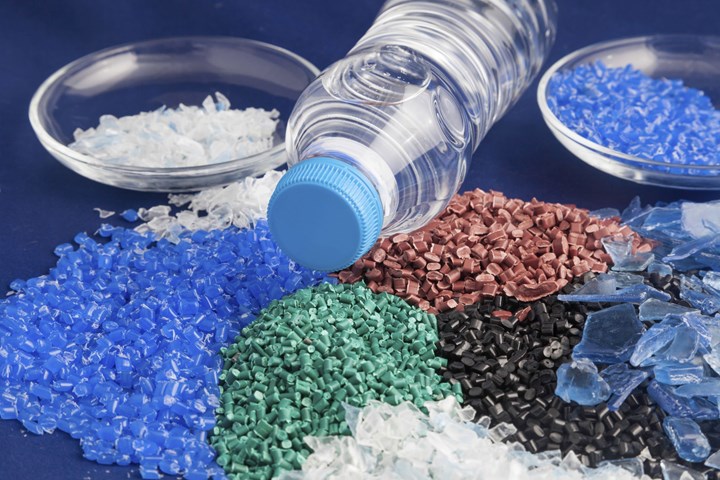Research Identifies Enzymes to Break Down PET
Bioinformatics demonstrates potential to advance processes in chemical recycling.
Recently published research in describes the identification of identify enzymes for breaking down PET, with potential application to chemical recycling.
The researchers used the sequences of proteins known to hydrolyze PET to construct a model. The model was applied to genome databases to identify additional stable enzymes capable of hydrolyzing PET near its glass transition temperature (around 65-80o C/ 149-176o F). Because some sequences could not be mapped to an organism with a known optimal growth temperature, a machine learning model was trained to distinguish proteins from thermophiles (organisms with optimal growth temperatures above 50o C/122o F).

In biocatalytic PET recycling, enzyme choices depend on the properties of the feed material.
Photo Credit: Getty
The analysis identified 74 candidate enzymes. After expression and purification trials, enzymes were tested for hydrolysis of amorphous PET. The best performing enzymes were further tested to determine how differences in the substrate, i.e. amorphous powder vs. film vs. crystalline powder, would affect the reaction.
Results showed that a wider range of natural enzymes have potential for the recycling of PET. One of the challenges with previously described enzymes is the necessity for pretreatment to make crystalline PET amorphous. Several of the enzymes described by the new research preferentially deconstruct crystalline PET. The authors suggest that development of techniques to remove the need for pretreatment could reduce process electricity use by 67%.
The work was completed as part of the , funded by the U.S. Department of Energy, by scientists from Montana State University, the University of Portsmouth, and the National Renewable Energy Laboratory. The article was published in Nature Communications on December 22.
Related Content
-
BASF Highlighting How They 'Make, Use and Recycle Future Solutions'
NPE2024: BASF is using its proprietary computer-aided engineering tool Ultrasim when designing for sustainability in a broad range of industries.
-
General Polymers Thermoplastics to Further Expand Distribution Business
NPE2024: Following the company’s recent partnership buyout, new North American geographic territories are in its sight.
-
The Recycling Collaboration That Is Making Circular Film a Reality
Nova Chemicals and Novolex are commissioning a large mechanical recycling facility for film to film.






